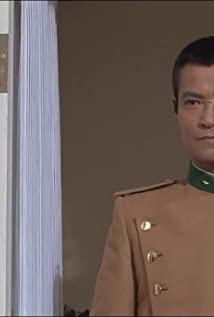ONE Natural selection, survival of the fittest. Who dares to grow old if they are handicapped and weak and are about to be eliminated? The TWO movie "Narayama Festival Kao" tells a story: In a small village in the deep mountains of Shinshu, Japan, due to extreme poverty, a tradition of abandoning the elderly has been inherited: all the elderly who live to the age of 70 will be discarded by their families. On Mt. Nara. The 69-year-old Aringpo is not far from her life in Narayama, but her body is quite strong. She is very distressed about this. She deliberately knocked out two front teeth on the stone mill. She has also been worried about the eldest son, Chenping, for fear that he, like his father Peace, would be ridiculed for not daring to carry his mother on Narayama's back. However, the old man in the neighbor's house is completely different from A Ling. Ayu came to Chenping's house as a continuation string, and both Alingpo and Chenping liked her very much. Later, the eldest grandson, Kasakaji, married the daughter of the Yuwu family. The Yuwu family was buried alive for stealing everyone's potatoes. A Lingpo taught Ayu how to catch fish, and said that Akin had sex with his second son, Risuke, for one night, and then came to participate in the ceremony to send her to Narayama. At dawn, Chen Ping climbed the mountain road of Mt. Nara with his mother on his back. There were piles of bones on the mountain. When he reached the top of the mountain, Chen Ping reluctantly bid farewell to his mother. He returned to the village to meet his neighbor and pushed his father off the cliff. He fought with the neighbor, and the neighbor also fell off the cliff. There are large snowflakes falling from the sky, A Lingba is peacefully waiting for death in the heavy snow of Narayama, Chenping and Ayu are snuggling, and they will go to Narayama together when they are old... THREE There are two types of people in the film, one is Ayu and Chenping. Those who can't bear to send the old man to Narayama have a little conscience. Like the daughter-in-law Noriko in "Tokyo Story", although she has filial piety, it is very limited. Either the material and financial resources are beyond the reach of the whip, or it is helpless to say "that's how life is, making people very selfish". Another category is the neighbor son who sacrifices his father for his own survival. This is very similar to "Tokyo Story", where the sons selfishly Hu Shi or sacrificed the old man thinking of their own lives. This is also understandable. The mental neglect can be explained by "everyone has their own family", and the physical one can be explained by the evolution theory of "natural selection". FPUR "Narayama Festival Kao" is a film with Japanese characteristics and oriental aesthetics. How long the lens, the picture is quiet and beautiful, like a print. In particular, the stage sets, purely dramatic style, fully demonstrate the pinnacle of Japan's classical aesthetic style. The use of color is also unique. When Granny A-Ling went to the crowd to look for her son after knocking out her teeth, the picture changed, and the red color was very impactful. When Granny Aring was going to Narayama, the picture showed blue and green tones, and the lighting was also very interesting As the people dispersed, they gradually focused on her mother-in-law, A Ling. The audience's heart gradually became sad with the light and color. Granny A Ling was seen as a "weird person" by outsiders, a "superfluous person" who did not go to Narayama to eat more food when she was old, but in the hearts of her relatives, she was The great one is like a Bodhisattva who saves all sentient beings. He will always be in the sacred mountain, leaving posterity to pay homage and atonement. Of course, these designs, whether the stage, the lighting, or even the colors, all serve the theme. Old, frail, and at the age of being "useless" and "abandoned", this is the custom of this ancient mountain village. On the basis of reality - a closed former world is constructed. Satire and criticism, all aimed at reality - abandoning the elderly, mentally or physically, has always been a big problem.
View more about The Ballad of Narayama reviews











